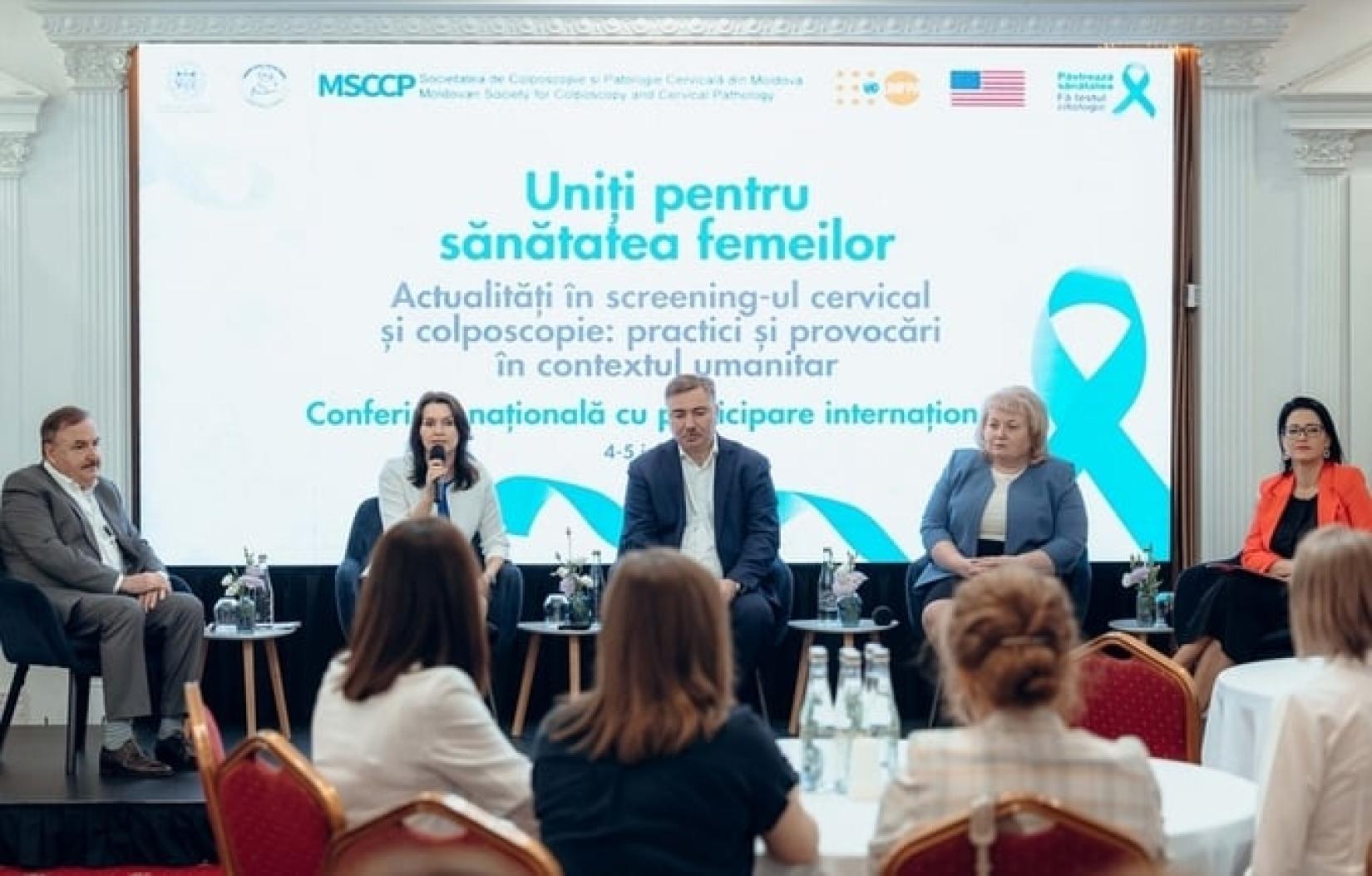Moldova has made progress in the prevention of cervical cancer. The subject was discussed during an international conference in Chisinau
05 July 2024
- In the Republic of Moldova, more and more women perform the cytological test in order to prevent cervical cancer.

Statistical data show that the share of women who have performed this test has doubled in the last three years and increased from 36% in 2021 to 62% in 2023. At the same time, more and more cases of cervical cancer are being detected, are of first and second degree.
These and other achievements, as well as the challenges faced by the Republic of Moldova in this field, were discussed during the conference "Current Issues in Cervical Screening and Colposcopy: Practices and Challenges in the Humanitarian Context", which took place in Chisinau.
Angela Paraschiv, Secretary of State at the Ministry of Health, stated: "The prevention and treatment of cervical cancer is a priority objective on the agenda of the Ministry of Health. We are committed to taking action to prevent and reduce the incidence and mortality of cervical cancer as part of the national cancer control program. To this end, we develop and implement health policies to bring cervical cancer prevention services closer to the target population."
The event was attended by representatives of the Society of Colposcopy and Cervical Pathology from the Republic of Moldova, representatives from the academic environment and medical education institutions, providers of cervical screening services in the country, as well as international experts from Romania, Ukraine, Poland, Slovenia, and the Netherlands. They exchanged knowledge, experiences, and best practices regarding the strengthening of cervical screening and colposcopy services, in accordance with international recommendations, to eliminate cervical cancer at the national level, in line with commitments made at the global level.
Iurie Dondiuc, President of the Society of Colposcopy and Cervical Pathology from Moldova: "The Republic of Moldova has strengthened its capabilities and has all the necessary mechanisms to eliminate cervical cancer. It remains to strengthen efforts to increase the accessibility and utilization of cervical screening services among women."
Thus, during the conference, the challenges associated with the need to continue informing and persuading women to visit their doctors in time for the cytological test and to follow all necessary treatment steps were discussed.
According to experts, cervical cancer remains a major public health problem globally, being the 4th most common cancer among women. About 90% of new cases and deaths occur in low- and middle-income countries.
Mihaela Grigore, Director of the Department of Maternal and Child Medicine and Professor at the "Grigore T. Popa" University of Medicine and Pharmacy, Iași, Romania, stated: "The challenges we encounter every day in colposcopy can be overcome through the continuous training of professionals, informing girls and women about the importance of cervical cancer prevention, creating an appropriate infrastructure for service provision, and ensuring quality control of the care provided. All these components can contribute to increasing the accessibility of services for women and the prevention of cervical cancer."
Due to the digitization of colposcopy services carried out in recent years in the Republic of Moldova with the support of the UN Population Fund (UNFPA) and other partners, the connection between medical personnel providing cervical screening services will be further strengthened. In the context of the creation of a national colposcopy network, women can access colposcopy services as close as possible to their communities when needed.
Natalia Plugaru, Deputy Representative of UNFPA Moldova: "In recent years, UNFPA and its partners have carried out essential interventions, including the modernization of 12 colposcopy units in the country and the creation of a Digital Colposcopy Network that brings these services closer to women throughout the country. This upgrade helps prevent cervical cancer and increases the rate of saving lives. We urge all women to visit their family doctor first to have a PAP test."
The conference "Current Issues in Cervical Screening and Colposcopy: Practices and Challenges in the Humanitarian Context", lasted two days and was organized in Chisinau by the Society of Colposcopy and Cervical Pathology from the Republic of Moldova and the Coordination Unit for the Implementation of Cervical Screening within the Mother and Child Institute. The event was held under the auspices of the Ministry of Health of the Republic of Moldova, with the support of the UN Population Fund (UNFPA) and the financial assistance of the US Government.





